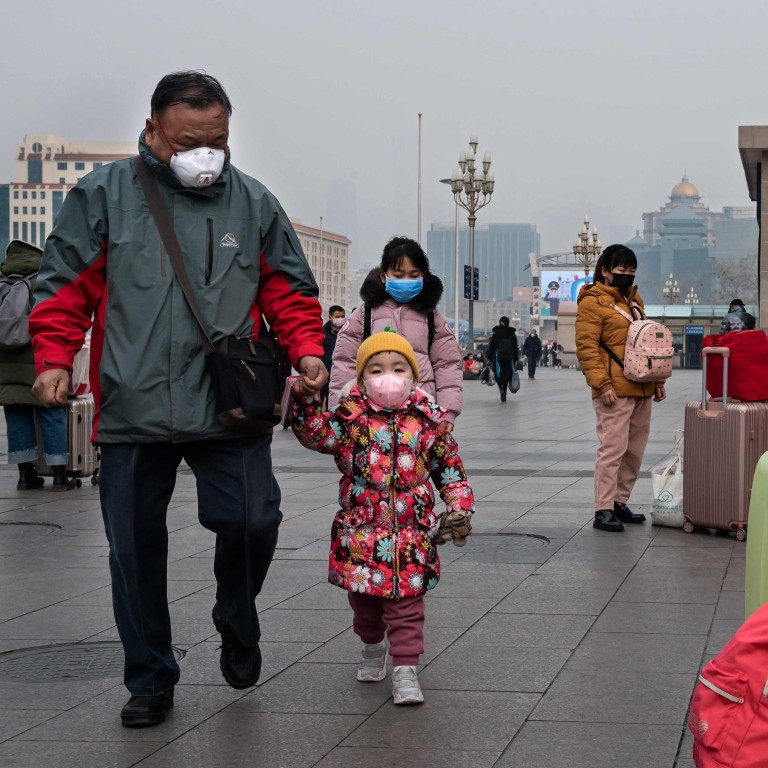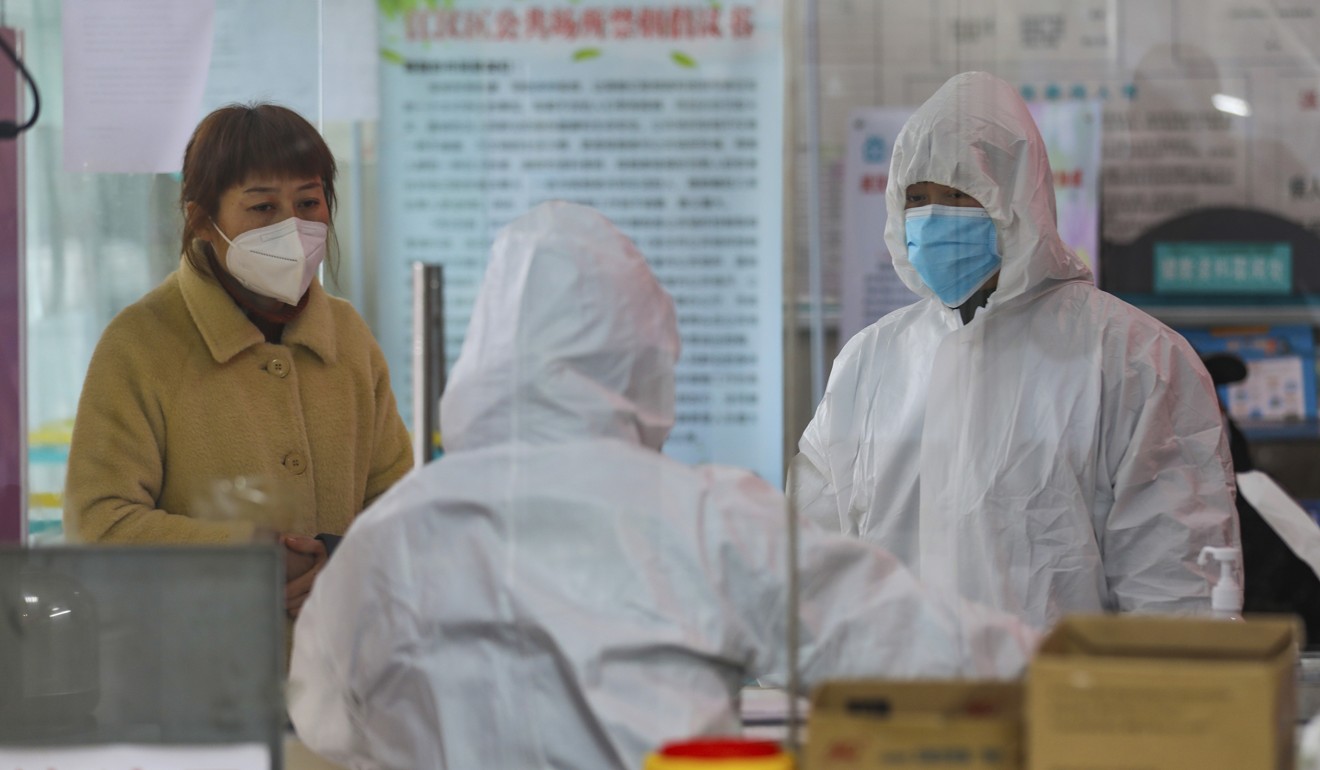
Wuhan coronavirus: China will contain ‘demon’ outbreak, Xi Jinping says as death toll mounts
- Chinese president pledges transparent and timely release of information about the illness
- Respiratory expert says outbreak might peak in the next week or 10 days
Meeting World Health Organisation director general Tedros Adhanom Ghebreyesus, Xi said that China was confident of containing the crisis and that he believed the international community would assess the spread in an “objective, fair, calm and rational” manner.
“The epidemic is a demon and we cannot let this demon hide,” state media quoted Xi as saying.
“The Chinese government has always adopted an open, transparent and responsible attitude to timely release of information on the epidemic, domestically and to other countries.”
The meeting came as the number of confirmed cases worldwide jumped to more than 4,600, with 106 deaths – all of them in mainland China. There were 1,771 new infections in mainland China on Tuesday – the biggest one-day jump since the outbreak started in December.
Various nations, including South Korea, Japan, the United States, Germany, Spain and India, said they were considering plans to evacuate their citizens stranded in Wuhan, Hubei province – the epicentre of the outbreak.
But Chinese state media quoted Tedros as saying that China had taken quick action to curb the spread and that its handling of the crisis had set an example for other countries to follow.
He said assessments of the outbreak should be based on science and facts, not overreaction.
The WHO said Tedros and Xi discussed ways to protect Chinese and foreigners in areas affected by the coronavirus and “possible alternatives” to evacuations.
A WHO panel of 16 independent experts twice last week declined to declare an international emergency over the outbreak. The agency said an increase in cases and deaths in China would not necessarily trigger the emergency status.
The WHO said only one of 45 confirmed cases in 13 countries outside China involved human-to-human transmission, and that was in Vietnam. But a Japanese official said there was a suspected case of human-to-human transmission in Japan as well.
Meanwhile, Zhong Nanshan, a respiratory expert and head of a national panel set up to deal with the crisis, said that the outbreak might peak in the next week or 10 days and that the fatality rate was expected to fall.
“So far, no medication has been developed to specifically target the virus, but scientists and medical workers have explored many ways. As great improvement has also been made in life-support systems, the fatality rate is expected to drop further,” state news agency Xinhua quoted him as saying.
Earlier in the day, Li Xingwang, chief specialist at Beijing Ditan Hospital’s infectious diseases unit, said existing data suggested that patients with mild cases needed about a week to recover, while those with more serious symptoms required two weeks or longer.
Some patients had not shown pneumonia symptoms and had only a mild fever or cough, whereas others had difficulty breathing or respiratory failure, said Li, who is also a member of the national panel.
In addition to air transmission, the coronavirus could be spread through physical contact, China’s National Health Commission (NHC) said.
A risk assessment report based on analysis of 2,744 infections recorded up to Sunday by the Chinese Centre for Disease Control and Prevention said the main route of transmission was respiratory droplet and close physical contact.
The assessment said the number of infections in Wuhan and other parts of Hubei was expected to continue to increase because of obvious community transmission.
It said the male-to-female ratio for infected patients was 1.16:1, and that only 0.6 per cent of infected people were under 15 years old. It said 16.8 per cent of patients had developed severe pneumonia, and estimated the fatality rate would be less than 3 per cent.

Also in Beijing, authorities are refurbishing a medical centre built during the 2002-03 Sars outbreak, according to mainland media.
Construction and medical workers have been stationed there for the past few days, according to a report by news portal Jiemian.
But China’s efforts to contain the outbreak and treat infected people are hampered by a shortage of medical supplies, according to Jiao Yahui, deputy head of the NHC’s Medical Administration Bureau.
Jiao said China was sending about 6,000 medical personnel to Hubei from around the country – with more than 4,000 already there and 1,800 more expected to arrive by Tuesday evening. In Wuhan, more than 10,000 hospital beds are available to accommodate the growing number of patients, she said.
“Shortages of protective clothing is a well-known problem, and some of our medical personnel are not able to go to the front line yet” because of that, she said.
Facebook has stopped non-essential travel to China by all of its employees, according to Bloomberg.
Some US banks and financial firms, including Citigroup, have told staff in Hong Kong to stay at home for two weeks and monitor their health if they have travelled to Wuhan or surrounding areas.
Banks in mainland China have extended the Lunar New Year break for staff until Monday after the State Council, the nation’s cabinet, extended the public holiday.
The Shanghai stock market announced late on Monday that it would resume trading on Monday after being shut since Thursday. The smaller Shenzhen exchange in southern China was expected to observe a similar suspension, according to a person familiar with the matter.
Additional reporting by Chad Bray, Catherine Wong and Reuters



